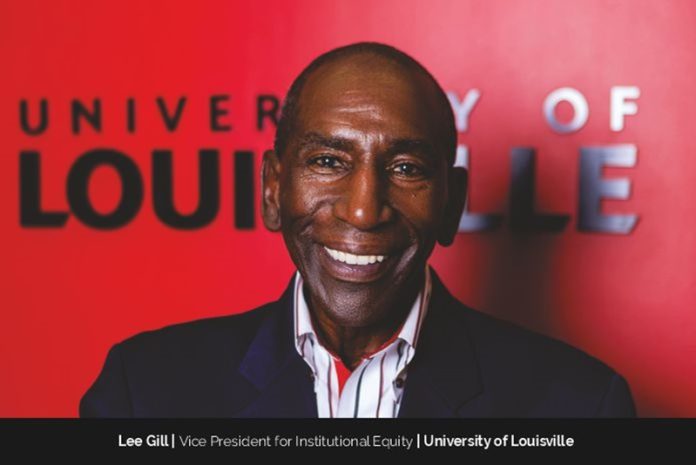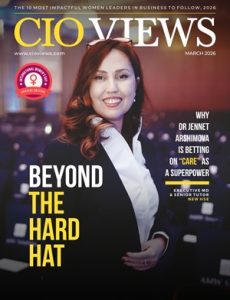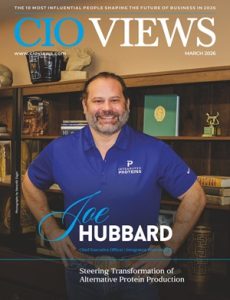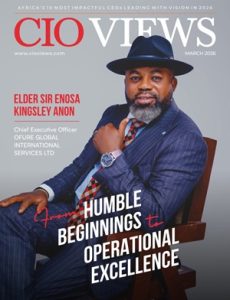By Gregory Ladewski
University of Michigan Law, Class of 1990
“Where do you see yourself, say, thirty or forty years from now?” asked University of Michigan President Robben Fleming. Seated across from him was Lee Gill, the recently elected Student Body President and first Black student to hold the post. The University, still embroiled in the turmoil over the Vietnam War, had agreed two years before to increase Black enrollment, resolving a strike led by a student group, the Black Action Movement (BAM). In their weekly meetings to discuss student affairs, Lee had pressed President Fleming for additional concessions on a proposed tuition hike, but now the two were done for the day.
“Where do I see myself?” Lee replied. “I see myself sitting in a seat like yours, as a university administrator.” Fleming nodded in agreement. “Eventually you will be,” he said. “Then, guess what? Sitting across from you, where you’re sitting now, there will be someone just like you, and you two will be having the same discussion we’re having now.” “Always remember, that most often there are more sides to an issue than you are aware.”
Despite their different agendas and constituencies, the two leaders forged a cordial and productive working relationship. Meanwhile, Lee was learning to moderate the assembly’s often contentious debates among clashing interests and opposing viewpoints. “But once the argument was over,” he recalls, “we might go and have a beer.”
From First-Generation Student to University Visionary
As President Fleming predicted, Lee Gill went on to take his place in university leadership. And in that role, Lee had those tough conversations with impatient students, brokered difficult, complex negotiations, put out numerous fires, and made tough and sometimes unpopular choices. Along the way, he earned accolades for the institutions he served and is now recognized as a progressive thought leader, visionary, bridge-builder, businessman, and civic leader. Above all, he remains a reasonable and pragmatic but always passionate advocate for those he had championed from his college days.
Lee understands firsthand the obstacles to higher education faced by first-generation students, particularly those like himself from economically challenged backgrounds. He was the first in his family to pursue higher education. A good student and gifted high school athlete, he was looking at local colleges when financial aid offered through the University of Michigan’s Opportunity Awards Program – pursuant to its agreement with BAM – led him to Ann Arbor. Lee seized the opportunity, and it made all the difference. “My own family’s trajectory looks completely different now than it did when I was a kid,” he says. “I saw how education changed my life, and I promised myself I’d help other students and families change theirs.”
Today he is looking ahead, not back. Lee remains dedicated to ensuring that the hard-won progress of past decades – opportunities for underrepresented, overlooked, and marginalized groups – is not lost. “No matter what certain people might want or think or try,” he says, “there’s no going back.”
“I saw how education changed my life, and I promised myself I’d help other students and families change theirs.”
Transforming Lake Michigan College into a Beacon of Diversity and Inclusion
Having obtained his bachelor’s degree at Michigan, Lee worked his way through law school at Chicago-Kent College of Law. After several years with a legal research and publishing firm, his next big opportunity came at Lake Michigan College (LMC) in Benton Harbor, Michigan.
“[President] Rick Pappas must have seen something in me,” he says. Hired from among a large pool of candidates and after a long search by the college, Lee served in several roles including operations, student, staff, and faculty development, eventually becoming its Affirmative Action Officer in 2000. “Starting my career at LMC was eye-opening because I got to wear so many different hats,” he recalls. “It taught me to be flexible and to respond quickly to the needs of the college and the community.”
Lee’s daily responsibility was to help LMC build a culture of inclusion and ensure that the college was in full compliance with all applicable laws and regulations. But in what would be the theme in each of his succeeding positions, he worked to build the infrastructure to make LMC a model for diversity and inclusion for students, faculty, and staff, and a resource for the region. “I’m an ‘above and beyond’ kind of guy,” he says.
Dr. Pappas encouraged Lee in a particularly ambitious project, the creation in 2006 of LMC’s Institute for Diversity and Leadership. Initially hosting televised roundtables and debates on diversity-related topics, the Institute soon allied with local grassroots organizations to address problems related to poverty, unemployment, and discrimination.
It also engaged with a Whirlpool Corporation initiative, The Council for World Class Communities, created to break down barriers to diversity and inclusion and to promote economic prosperity in Southwest Michigan. Outreach to the college community, and productive partnerships with responsible corporate citizens, would be major themes of Lee’s career.
While at LMC, Lee also found time to create The Stratus Group Consultants LLC, a DEI consulting firm serving corporations, small businesses, municipalities, health care systems, and law firms, as well as colleges and universities.
Laying a Foundation for Diversity, Inclusion, and Cultural Competence at the University of Akron
After nine productive years at LMC, Lee joined the University of Akron in 2008 as its Inaugural Chief Diversity Officer and Associate Vice President for Inclusion and Equity. A large urban institution, Akron offered a fresh set of challenges, brought new insights, and fostered new skills.
Again, Lee set forth to build a firm foundation for a diverse and inclusive culture at Akron, while looking for ways to use his influence for the greater good. He developed and expanded mentoring programs, workshops, and seminars to raise cultural awareness, grow cultural competencies, and foster understanding and appreciation of diversity and inclusion. An innovative program Lee inherited was Akron’s Black Male Summit, started by Dr. Fedearia Nicholson and others, dedicated to closing the opportunity gap of Black youth. Under Lee’s guidance, the Summit outgrew its campus setting and moved to the John S. Knight Conference Center.
With Lee’s growing prominence in the higher education universe, another, even more challenging opportunity presented itself.
Transforming Diversity and Inclusion at Clemson University
Lee was approached by Clemson University, an R-1 Research institution located on what had once been Southern firebrand John C. Calhoun’s plantation. In May 2016, Lee assumed his new role as Clemson University’s Chief Diversity Officer and Special Assistant to the President for Inclusive Excellence.
Lee’s first day at Clemson came as more than a hundred protesters were encamped on the administration building steps, demanding changes in the university’s climate and culture. Once again, Lee drew on his talent for navigating contentious debates and finding win-win outcomes in negotiations. It was not all sunshine and roses, of course – he still remembers a voicemail from an angry local resident complaining that Clemson had been “perfectly happy without a [DEI chief] for over a century, so why do we need one now?”
As a condition of his employment, Lee had asked for and been granted a substantial budget increase and several new staff positions for his office. After a year building his team and forging an inclusive culture and infrastructure, Clemson was honored for the first time with the coveted Higher Education Excellence in Diversity Award (HEED) for its commitment to Inclusive Excellence. A recognition the University has earned each year since.
Building on the success of the Black Male Summit, Lee created Clemson University’s Men of Color National Summit, bringing together over two thousand students, educators, thought leaders, and distinguished presenters. Corporate sponsorships and community engagement are hallmarks of the event. The Summit, devoted to uplifting educational achievement for Black, Hispanic, and Native American young men, was soon complemented by the Women’s Round Table Conference. Together, the two annual events are a national best practice.
He also created the Tiger Alliance, a hugely popular program illuminating pathways to college, bridging the opportunity gap and creating a college-going culture for high school men in Upstate South Carolina. Lee still feels a special bond with the initial cohort, four hundred strong, all of whom graduated from high school and went on to college.
A self-described “happy camper” at Clemson, Lee was confident that he had helped lay a firm foundation, and he was soon ready for a different platform and an even greater challenge.
“This is what gives me the satisfaction and passion to continue doing this work.”
UNIVERSITY OF LOUISVILLE
Lee was initially drawn to the University of Louisville by the inspiring leadership of its former President, Neeli Bendapudi. The appalling killings of George Floyd and Breonna Taylor prompted Bendapudi to commit Louisville to become the premier university for DEI practices, not only for the community, state, and region but nationally.
“When I saw her set this audacious goal, I had to take notice,” he says. Lee’s interest grew keener upon learning of the university’s demographics: fully a third of its students are first-generation, and even more are from low-income backgrounds much like Lee’s own. “Then and there,” Lee says, “I decided to throw my hat in the ring.”
Upon arriving at Louisville, Lee again focused on building the necessary infrastructure to support Inclusion and Equity efforts, including hiring additional staff and re-purposing existing positions to enhance impact and support student success. Lee is unafraid of making necessary decisions and course corrections along the way. “This is an art, not a science. When we achieve a culture in which our faculty, staff, and students are valued and believe they can live up to their full potential, no matter their background or demographics, that will be success,” he says.
Lee’s role requires him to oversee staff, attend multiple meetings, review and revise policies, follow legislative actions, and engage with student, faculty, and staff organizations. “I might be putting out a fire one day and giving out awards to students on the next.” Events on campus or in the city can require his immediate, complete attention, as can national or even international developments. “It can be challenging and enjoyable at the same time,” he says ruefully. But decades of practical experience give him the skills to resolve or mitigate the problem and the perspective to not lose sight of the big picture.
The University of Louisville is one of only 84 universities in the United States to be recognized by the Carnegie Foundation as both a Research 1 and a Community Engaged university, showcasing its commitment to student success, research, and innovation. Under the leadership of Lee, the Office of Institutional Equity is driving this mission through data-driven strategies that focus on measurable outcomes for students working to ensure that inclusivity and equity are woven into the fabric of student success. Lee’s efforts are reflected in programs like Cardinals Rising, an initiative developed to prepare students for success by providing early access to pathway programs.
Personalized to meet the unique needs of the Greater Louisville community, Cardinals Rising draws inspiration from Clemson’s Tiger Alliance, creating opportunities that directly impact both individual students and the broader community. Unlike its predecessor, Cardinals Rising will offer specialized programs and assistance to students from low-income, and first-generation families. Each cohort, grades 8 through 12, will receive a tailored program, first inspiring the ambition to attend college, and then showing step by step the path to college admission. “We are the workforce generator for the state of Kentucky. We change lives,” he emphasizes.
Building Pathways to Success for First-Generation and Low-Income Students at University of Louisville
A mentor to many himself, Lee counts Dr. Richard (Rick) Pappas at LMC (now President of Davenport University), and Dr. Elizabeth (Beth) Stroble of Akron (now Chancellor of Webster University) among his own strong, positive influences. Another strong influence that is often mentioned is Clemson’s President, Dr. Jim Clements, who Lee readily cites as “one of the best in the country.”
Of course, legendary University of Michigan President Robin Fleming was an early inspiration. Years after Fleming retired from Michigan, the two met at an event at Washtenaw Community College, where Dr. Fleming was serving on the Board of Trustees. Now colleagues, Lee and Fleming reminisced about the turbulent 70s, including the conversation back in his office. “He was a good president and a great leader,” says Lee, “and frankly very kind.”
However, Lee always gives pride of place to his mentor Dr. Jon Onye Lockard, acclaimed educator and artist, who took Lee under his wing at Michigan, and became a lifelong colleague and friend until his death in 2015. Among his many achievements, Lockard painted the magnificent murals at the first of Michigan’s cultural residence hall lounges. The lounge, called “Ambatana” (a Swahili word meaning “stick together”) was itself one of Lee’s earliest successful projects as Student Body President, and has been joined by dozens of other multicultural spaces, each dedicated to a specific diverse culture.
Inclusive Excellence: Progress, Setbacks, and the Ongoing Fight for Equitable Change
Lee notes that the work of DEI is far from done. “We’ve come a long way, and our thinking and our vision are more sophisticated now, but the core values and the goal are the same: bringing equitable, meaningful change for marginalized and underrepresented groups.” Indeed, DEI is evolving again. “The new gold standard is a sense of belonging throughout the community.” Asked “Who is the community?” he responds emphatically, “Everyone. The community is every single person.” Our focus is on Inclusive Excellence.
“Back at Michigan in the early 1970s, our main focus was racial,” he says. “But as Dr. King said, the universe’s moral arc keeps bending toward justice, and so we had the women’s movement, the Latino movement, the Americans with Disabilities Act, the struggle for LGBTQ rights, and educational interventions for those with learning disabilities.” But, he adds, the work didn’t end there. “The more we look, the more untapped potential we see. In recent decades we’ve come to better appreciate the challenges to our veterans, the disabled, new arrivals, and senior citizens.”
For a time, it seemed that the laws and the courts were finally beginning to keep pace with societal change. Lee recalls with pride how the University of Michigan was at the forefront of DEI in **Grutter v Bollinger**, the 2003 case in which SCOTUS recognized the Law School’s compelling need for a diverse student body. “More than eighty major corporations including GM, Ford, Boeing, Lockheed and many others filed amicus briefs supporting DEI in higher education. That got all our attention then, and it’s just as important and timely today. In our shrinking, flatter world, corporations understand firsthand the compelling business case for workforce development and expanding global markets to build high performing and inclusive teams.”
He is doubly disappointed, then, that SCOTUS has largely overruled Grutter. Perhaps worse yet, some states now forbid or outlaw certain DEI-related books, topics, or historical events in their schools, and others are busily defunding and dismantling DEI departments, programs, and initiatives in higher education. These prohibitions include the very sort of minority outreach that brought Lee to the University of Michigan in the first place, and the inclusive efforts such as the Multicultural Lounge that was his first achievement there. “Some folks seem to want to turn back the clock,” he says. “But clocks move forward, time marches on, and so will we.”
“When you look at the landscape today,” Lee says, “we see progress on so many fronts. But it’s hard to focus on successes considering what’s happening on the national scene. There’s still a lot more work to do.”
Advocating for Civility in University Discourse
The breakdown of civility in university discourse deeply troubles Lee. “Disagreement and debate is essential for learning. It’s really what education is all about. It builds critical thinking skills and understanding of other people and groups.” But in today’s echo chambers, both conservative and progressive, people are becoming intolerant of even the slightest departure from accepted beliefs. “Look, we don’t have to agree on everything – reasonable people can and will disagree, and that’s actually a positive,” he says. “So let’s debate, discuss, disagree, we can be passionate but afterwards still be friends. We don’t have to demonize each other.”
Lee notes that his greatest change over the years has been the ability to listen. “I’m a much better listener now than I ever was,” he says. “And I really appreciate hearing different viewpoints and ideas. I try to bring an open mind to discussions and debates, and I trust others will as well.”
Celebrating First-Generation Graduates and Transforming Lives
No matter the headaches, the setbacks, and the ups and downs, the rewards make it all worthwhile.
“Seeing the smile on the faces of those students, – and of course their parents – when they march across that stage and receive their diplomas, knowing that they are the first generation in their families to do so, is incredibly rewarding,” Lee says. “Then there’s the smile we all have – administration, faculty, and staff – when we see students’ lives changed – that keeps us doing what we do,” he adds. “There is no greater satisfaction than watching a young student evolve – remembering their freshman year, when they were fearful and unsure, and then seeing them four years later, earning their degree and heading off to a career, or to med school, law school, or wherever their path takes them.”
He smiles. “This is what gives me the satisfaction and passion to continue doing this work.”
Lee has served on numerous boards including the Martin Luther King Monument Construction Project, the Akron, OH and Upstate SC Urban Leagues, NCORE National Conference on Race and Ethnicity in Higher Education, National Conference of Artists, Hispanic Alliance. He currently serves on the Board of Directors at the Muhammad Ali Center, the TIAA DEI Council, and the Editorial Board of Insight into Diversity Magazine.
Lee has received Insight into Diversity Magazine’s National Diversity Visionary Award, Furman University’s Atlantic Institute’s “Peace and Dialogue” Award, and was named “One of Greenville South Carolina’s 50 Most Influential People.”





